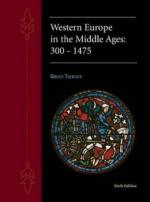|
This section contains 952 words (approx. 4 pages at 300 words per page) |

|
| 600 | St. Gregory the Great, pope from 590 to 604, begins to establish a standardized Christian liturgy, including the plain-chant melodies ("Gregorian Chant"). |
| Pope Gregory establishes the papal choir school (Schola Cantorum), which continues to the present day in Rome. | |
| 800 | Charlemagne, king of the Franks and emperor of the Romans, continues the process, begun by Pope Gregory I, of regularizing the plainchant repertory. |
| c. 814 | Following earlier suggestions by Emperor Charlemagne, the clergy begin to dramatize some of the important stories in church history, an effort that eventually results in the first liturgical dramas that reenact, with sung dialog, the visit of the three Marys to the tomb of Christ. |
| c. 850 | An anonymous author writes Musica enchiriadis (Music Handbook), a widely circulated treatise on music theory that is one of the earliest attempts to notate music. It includes the first written attempt at polyphony (music in... |
|
This section contains 952 words (approx. 4 pages at 300 words per page) |

|




